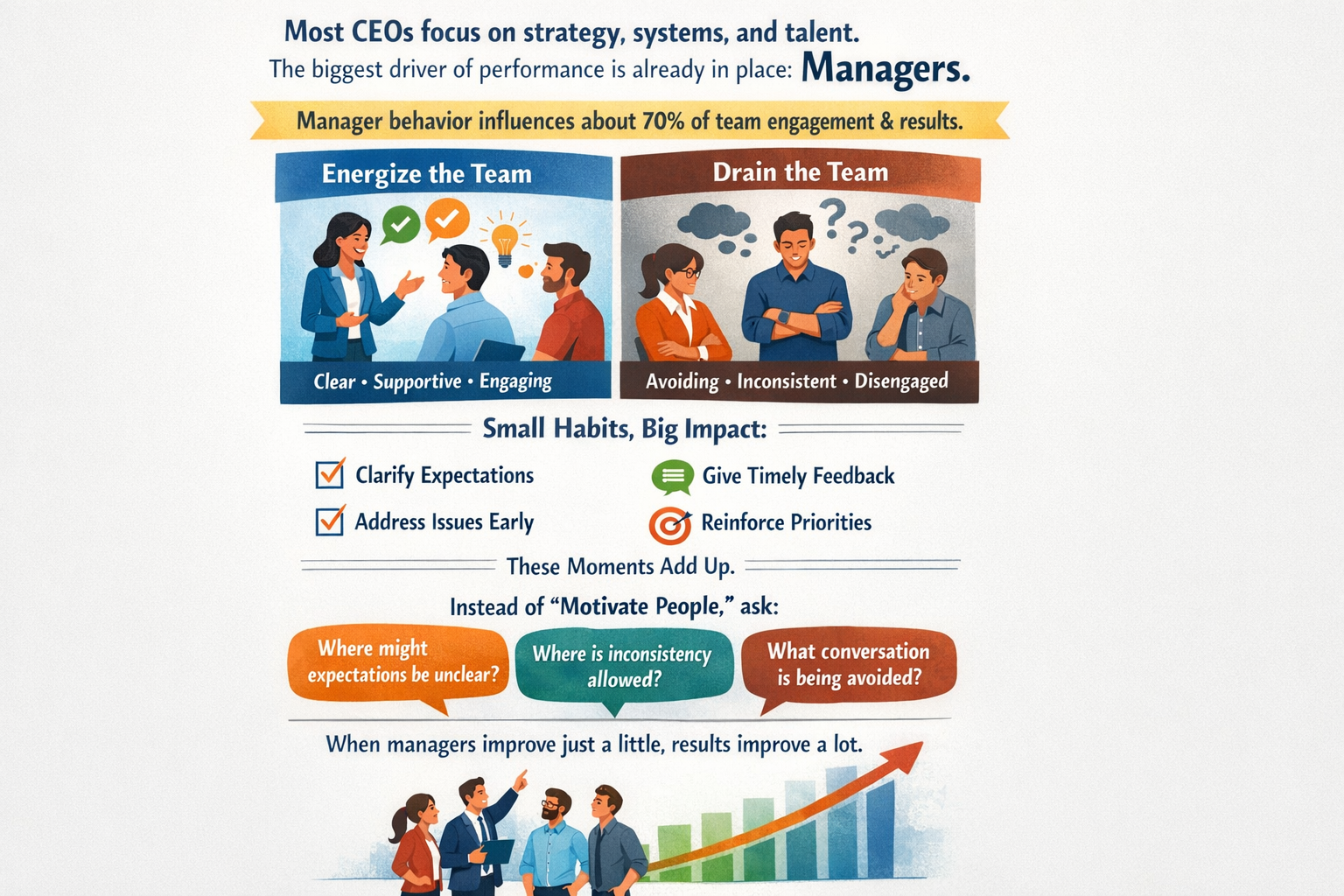Understanding the Decisive Behavioral Style

Being aware of your and your employees' primary and backup workplace behavior styles will make you a better leader. This self-awareness helps you to:
- more quickly engage and motivate each of your employees
- recognize your own strengths and weaknesses
- communicate more effectively with each employee by tailoring conversations to fit their workplace behavioral style.
When someone’s primary behavioral work style is decisive they tend to blend a low level of emotional responsiveness with a relatively high degree of assertiveness. Individuals with this behavioral style tend to make decisions using logical analysis, weighing the pros and cons objectively. They prefer to focus on possibilities and the big picture.
Members of your team with Decisive as their primary work style tend to have the following strengths:
- goal-oriented
- achievement-driven
- independent
- analytical
- conceptual
- inventive
- logical
They will take their time to concentrate and give correct answers. Challenges, variety, and change are enjoyed and keep them motivated and engaged.
Limitations to the Decisive work style include:
- impatience
- insensitivity
- becoming bored by routine and details
- demanding
- blunt
- poor listeners
Leaders with this Decisive style will benefit from being aware of their limitations and becoming conscious of modifying communication, practicing better listening skills, and effectively connecting with team members who have other work styles.
Management effectiveness can be improved by practicing different ways of communicating with their employees. For example:
Rather than saying "Ok, let's just get this done now" to the team (impatient and demanding),
Do this instead. "I would like to get this completed by next Thursday. What do you need from me to reach that goal?
Rather than saying, "You are just not doing a good job" (both blunt and insensitive)
Do this instead using open-ended questions. "I have noticed that you have been having difficulties meeting deadlines. What has been causing you to miss deadlines? How I can help?"
There are challenges with the Decisive work style. These employees may find it difficult to interact effectively within their team. Because they want to get to the point quickly, they may not listen well to other team members. Their results-oriented and competitive nature can shut down the contribution of other co-workers.
Coaching these employees will almost always include helping them learn more effective communication strategies. Because they are logic-based and analytical, provide reasons why communicating differently with their team members will be beneficial.
Make sure that they are in a right-fit position within the team. Employees with the Decisive work style make outstanding researchers and can strengthen the team by contributing their analytical perspective and objectivity. Positioned correctly, the rest of the team will value the input provided.
Providing feedback on the quality of their work will be motivating and keep these employees engaged. Recognize their capabilities and ideas. Give them opportunities to learn and build competencies and logical processes.
Because Decisive employees can become bored by routines, make sure that they are consistently challenged and able to explore new ideas and options.


